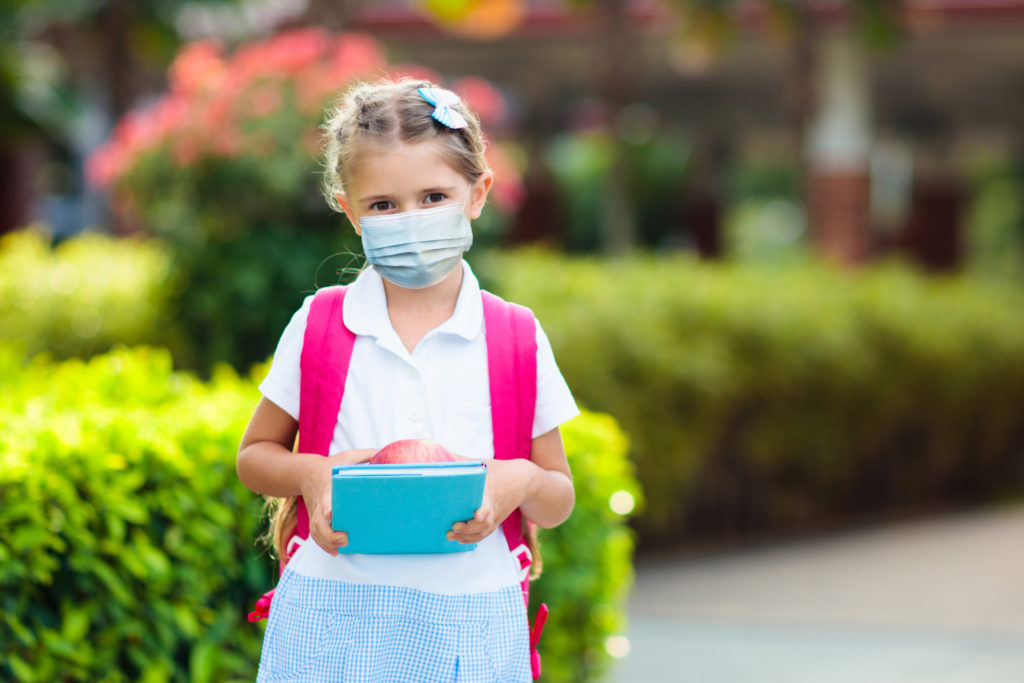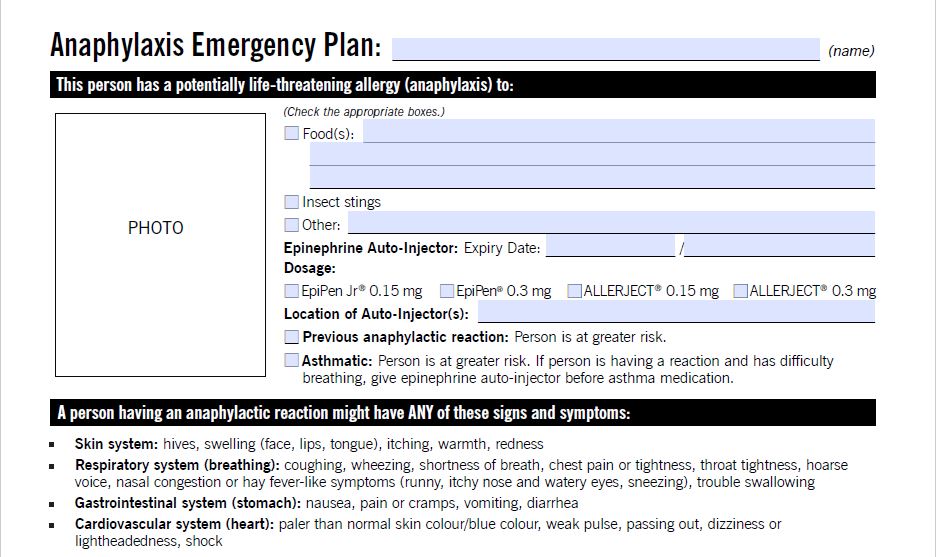Ask the allergist is a regular feature in our newsletters where Dr. Julia Upton answers your questions!

Dr. Julia Upton is a Canadian allergist who is on staff at Toronto’s SickKids Hospital in the Immunology and Allergy Department. She is an Assistant Professor in the Department of Paediatrics at the University of Toronto and is the Section Chair of Food Allergy and Anaphylaxis with the CSACI. Dr. Upton is also a member of our Healthcare Advisory Board.
Please note: Dr. Upton is answering as an individual allergist and her answers do not constitute an official position of her affiliated organizations. Her responses are for informational purposes only and do not constitute specific medical advice, recommendations, diagnosis, or treatment. Please talk to your doctor about any concerns or questions you may have regarding your own health or the health of your child.
This month she answers your questions about mask wearing at school during COVID-19, and differentiating between anaphylaxis and asthma.
Many students, including those at risk of anaphylaxis, will be wearing masks at school to limit the spread of COVID-19. If a student is having an anaphylactic reaction with skin symptoms around their face, these symptoms may not be as noticeable due to the mask. What do you suggest?

Thank you for your question about masks potentially making allergic symptoms more difficult to recognize.
Masks for COVID-19 precautions are taken off when eating and skin will be visible during this time. An allergic reaction can happen after the mask is put back on, following a meal or snack.
Since masks may cover up skin symptoms on the face during an anaphylactic reaction, it’s important to talk to your child about the signs and symptoms in an age appropriate way. They should know to tell an adult if they start to feel unwell at school.
Anaphylaxis generally includes two or more body systems, which means that your child most likely will have other symptoms beyond the skin covered by the mask, such as hives or itching on other parts of the body, or symptoms related to breathing, the stomach or heart.
How can you tell the difference between anaphylaxis and an asthma attack, also called an asthma exacerbation?
This is a very important question given that many people with food allergy also have asthma. Whether someone is experiencing a severe allergic reaction or an asthma attack, both need to be treated quickly.
Anaphylaxis can start with breathing difficulty, wheezing and/or tightness of the chest, and initially appear to be an asthma attack.
Certain factors make anaphylaxis more likely. If there are any symptoms beyond the lungs, such as skin symptoms of itching or hives, heart symptoms such as feeling faint, or stomach symptoms of nausea or vomiting, it is likely anaphylaxis.
It may be the beginning of anaphylaxis if there is trouble breathing after eating a food. There are also rare examples of inhaling food allergens (such as fish proteins from steam) which mostly affects breathing.
If there is uncertainty about the cause of severe breathing difficulty in people with food allergy and asthma, I recommend using an epinephrine auto-injector (e.g. EpiPen®, ALLERJECT®) first, and asthma medication such as salbutamol (e.g. Ventolin) afterwards.
A written anaphylaxis emergency plan from your health care provider describes the signs and symptoms of anaphylaxis and what to do in case of a reaction. This form may also have a place to indicate that a person has asthma too, as they are more susceptible to severe breathing problems when experiencing an anaphylactic reaction.
It is very important for people with food allergy to have their asthma controlled. An asthma action plan lists different symptoms and how asthma medications may need to be adjusted.
Learn more about asthma and anaphylaxis here and about asthma in general from asthma.ca. Find answers on past questions, from food allergy and COVID-19 to other allergic conditions, at foodallergycanada.ca/asktheallergist.
Do you have a question you’d like to ask Dr. Upton in the months to come? If so, please send it along to us at info@foodallergycanada.ca.
Please note: Dr. Upton answers questions on general topics, please talk to your doctor if you have questions about your own health or the health of your child.

